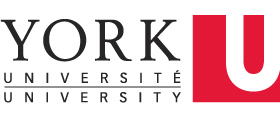Transcultural Pedagogy in Culture and Language
Cluster Objectives: The population of students in Korean studies classes in North America has undergone a major shift over the past few decades. While heritage language learners used to comprise the majority of students, the advent of the Korean Wave has brought new kinds of students into our classrooms. Taking this new population of Korean studies students as our primary focus, experts in the spread of Korean media, Korean language and culture education, and transnational South Korea will develop research and pedagogical materials. The proposed projects are unique in their emphasis on both research and pedagogy. The cluster will contribute to the expansion of Korean studies in the English-speaking world by developing a strong program of research to investigate the role that these learners lay in the spread of Korean culture across the globe and by developing pedagogical materials to engage such students in Korean language and culture classes. The research program will focus on 1) examining the impact of globalization on the linguistic, social and cultural spread of Korean language and culture; 2) investigating the ways that access to Korean popular culture is facilitated by the labour of bilingual, multicultural brokers and by technology; and 3) analyzing the global media flows that help to spread Korean culture across the globe.
The proposed project will develop innovative e-Textbooks and other teaching materials for meeting the needs of Canadian learners who are interested in Korean culture and language by incorporating Canadian context and culture. The cluster includes educators who have decades of experience teaching such students. The collaboratively produced e-Textbooks and teaching materials will enable educators to customize and to update on the basis of feedback from users. Through the collaborative sharing of lesson plans, materials, and exercises, the e-Textbooks and teaching materials will position Korean studies as a leader in the field of culture education and language pedagogy, which will prepare students to further their education in Korean studies with the socio-cultural sensibility in Canada. The cluster will also pioneer the development of online and blended courses in Korean studies. This aspect of the research will build upon the expertise of Professors Jeon and Lee from York University, who developed the first fully online Korean language course with funding from the Ontario Online Initiative Grant. With the assistance of the AKS grant, the cluster will assist other universities, high schools, and community run language schools in running their own blended learning programs in these areas, which will form an important component of community outreach of this project.




